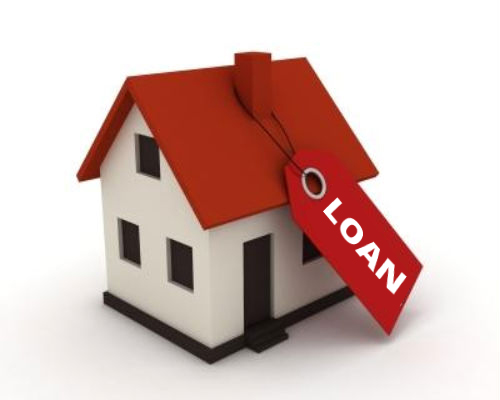Rise by Six: Your Daily Dose of Inspiration
Explore insights and stories that elevate your day.
Home Loans and Regrets: What You Wish You Knew Before Borrowing
Discover the top mistakes to avoid when securing a home loan—save money and regret with our expert tips!
Top 5 Common Mistakes to Avoid When Applying for a Home Loan
Applying for a home loan can be a daunting process, and many first-time buyers make mistakes that can cost them significantly. One of the top mistakes is failing to check their credit score before submitting an application. Lenders scrutinize credit reports to assess risk, and a low score can lead to higher interest rates or even denial of the loan. Ensuring that your credit profile is in good shape not only prepares you for better loan terms but also helps you identify any discrepancies that may be remedied before the application process.
Another common pitfall is neglecting to shop around for the best rates and terms. Many prospective homeowners settle for the first offer they receive, which can lead to missed opportunities for savings. It’s essential to compare multiple lenders and consider not just the interest rates but also the fees involved. By taking the time to explore different options, you can secure a more favorable deal that aligns with your financial goals.

The Hidden Costs of Home Loans: What Borrowers Often Overlook
When taking out a home loan, many borrowers focus primarily on the interest rate and the monthly payment, overlooking the hidden costs that can significantly impact their overall budget. These costs can include origination fees, appraisal fees, and even closing costs that can range from 2% to 5% of the loan amount. Additionally, homeowners should be prepared for ongoing expenses, such as property taxes and homeowners insurance, which can fluctuate over time. Skipping a thorough analysis of these factors can lead to unexpected financial strain, especially in the later stages of homeownership.
Another often-overlooked element is the impact of your credit score on the total cost of a home loan. A lower credit score can lead to a higher interest rate, making monthly payments more expensive than initially anticipated. Furthermore, prepayment penalties are another hidden cost that some lenders impose, making it costly for borrowers who wish to refinance or pay off their loans early. Understanding all these factors not only helps in securing a favorable loan but also equips borrowers with the knowledge needed to make informed financial decisions in the long run.
Is Your Home Loan Right for You? Questions to Ask Before Signing
Before committing to a home loan, it's essential to evaluate whether it truly meets your financial needs and long-term goals. Start by asking yourself what type of loan is best for your situation. Consider the various options available, such as fixed-rate versus adjustable-rate mortgages. Each type has its pros and cons, which can significantly impact your monthly payments and overall financial stability. Additionally, examine the loan terms—duration, interest rates, and fees. Ensure that they align with your budget and lifestyle.
Next, assess your credit score and how it affects your eligibility for a home loan. A higher credit score often results in better interest rates, saving you money over time. Consider inquiring about the down payment requirement; some loans may require as little as 3% down, while others may expect more. Finally, don’t hesitate to consult with a financial advisor to clarify any doubts. Asking the right questions can empower you to make an informed decision, ensuring that your home loan is indeed the right fit for you.